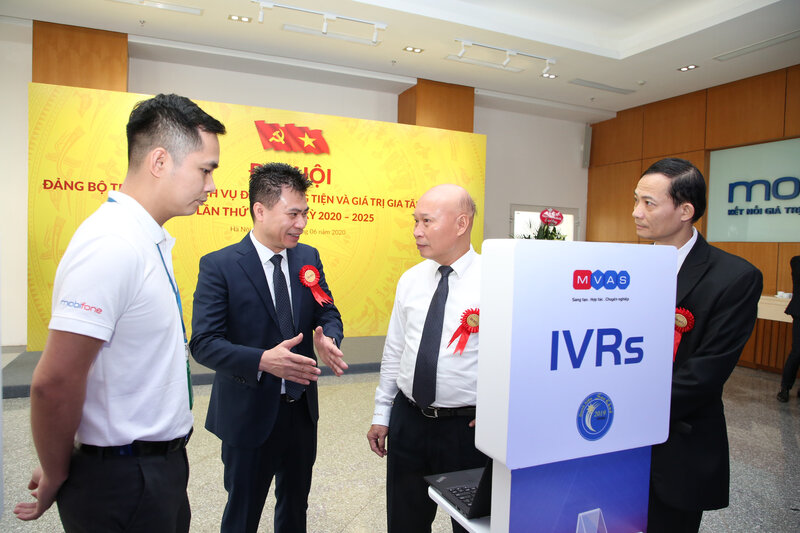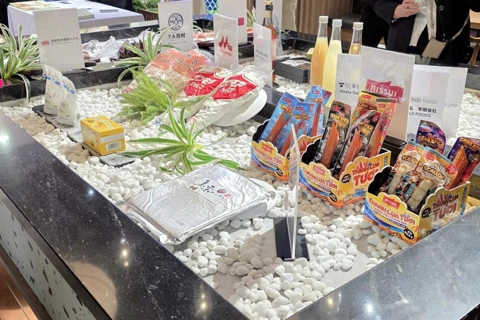Mobile Money – a step to ensure financial inclusive in Vietnam: Expert
Mobile Money is aimed at providing payment services for underprivileged groups of customers, who could not have chance to access traditional banking services.
Director of Mobifone’s Digital Services Center Hoang Sinh Truong told Hanoitimes of his expectation for Mobile Money, Vietnam’s direct carrier billing service, and its role to promote financial inclusive in Vietnam.
| Director of Mobifone’s Digital Services Center Hoang Sinh Truong (second from left). |
Prime Minister Nguyen Xuan Phuc has approved the deployment of the pilot project of Mobile Money in two years. What is Mobifone’s plan to carry out such a new service?
Prime Minister’s Decision No.316/QD-TTg approving the pilot implementation program of making e-payments of goods and services with small value by charging to mobile phone carrier bill (Mobile Money) would provide the legal framework for enterprises and state agencies to carry out the services.
As such, Mobifone would now have to seek the authorization from the State Bank of Vietnam (SBV) to participate in the project.
I would say Mobile Money is a required step to promote digital payment with quick and basic online payment methods, especially among people in rural and remote areas. In this regard, customers have the opportunity to access to basic banking services with affordable cost and gain understanding on finance-banking.
In this regard, Mobfone will continue to expand its linkage with banks and financial institutes to explore new business opportunities, while finalizing our own digital finance ecosystem in a bid to expand customer base.
Can you share Mobifone’s expectation to this new service?
Given the government’s push for digital transformation and the actual needs for further grow, telecommunication firms should gradually take a greater role in providing adequate infrastructure for socio-economic development.
Mobile Money is aimed at providing payment services for underprivileged groups of customers who could not have chance to access traditional banking services.
A survey conducted by the SBV revealed that 70% of Vietnamese adults have bank account, so the main target for Mobile Money would be the remaining that are living in rural and remote areas.
Taking the advantage of existing telecommunication infrastructure, Mobifone and other telcos will prioritize the provision of Mobile Money in these areas and further promote financial inclusive in Vietnam.
This is in line with Vietnam’s strategy of becoming a cashless society, while gradually enhancing the national competitiveness by giving locals access to financial instruments.
What would be the challenges in implementing Mobile Money?
As a new service, there would be difficulties in identifying customers and prevent frauds in payment process, which requires an efficient governance mechanism.
However, the most challenging issue would be to convince people with low income in poor areas of underdeveloped socio-economic infrastructure development to use this service.
This would require long-term efforts and determination from both the government, enterprises and also the customers to ensure the efficiency of Mobile Money.
Thank you for your time!
Mobile money, which allows people to transfer money through cellphone account instead of a bank account, is expected to boost the development of e-commerce, e-market for agricultural products, fintech companies and innovative startups. The transaction limit is set at VND10 million (US$428.9) per month. The Ministry of Information and Communications (MIC) has suggested the pilot implementation of Mobile Money would help expand e-payment services to 100% of the population and boost economic growth by 0.5 percentage points. To achieve the goal of becoming a cashless society, the government targeted to reduce cash payments from 11.3% in 2019 to less than 10% by the end of this year, and 8% by 2025. |













